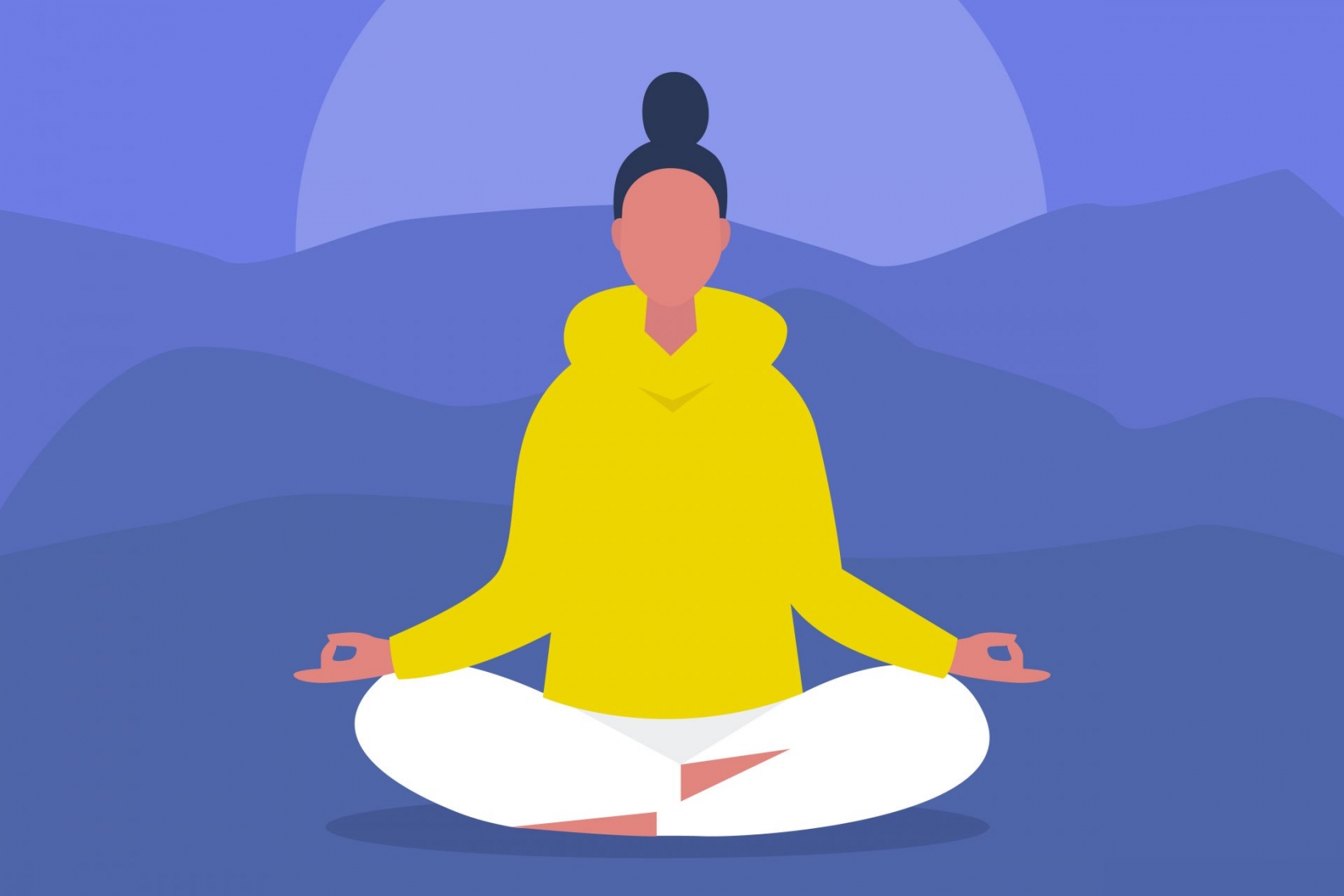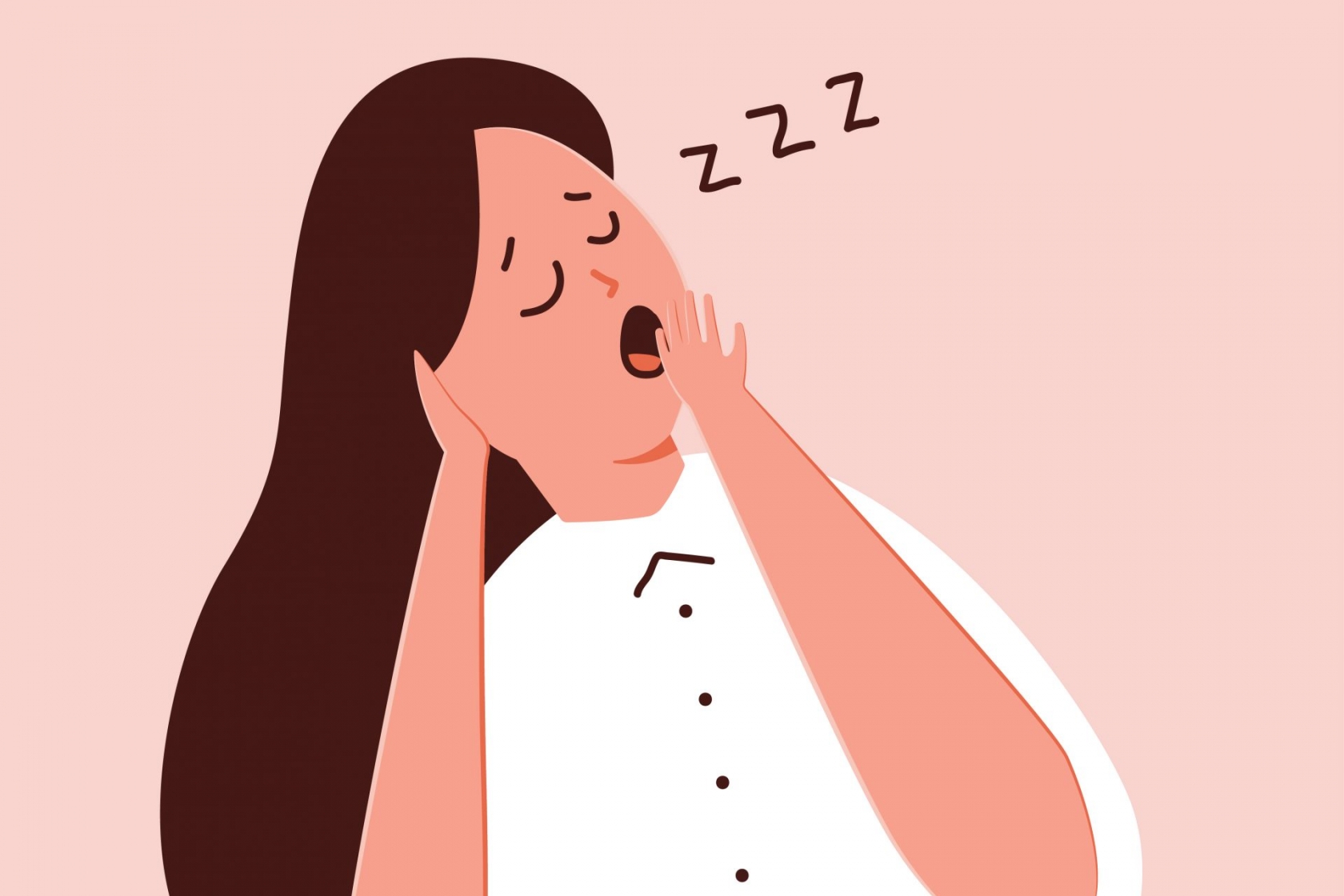Welcome back to Sleepless Nights, Stylist’s weekly series designed to help you put your Sunday night anxiety and worries to bed. This week, we’re taking a closer look at the vagus nerve, and the role it could play in reducing stress and anxiety.
From mindfulness meditation and aromatherapy to ‘awe practice’ and journaling, there are plenty of different ways to deal with stress and anxiety. But what if we told you one of the most effective stress-relieving tools at your disposal might have been laying inside you all along?
If you’ve never heard the words ‘vagus nerve’ before, you might be in for a treat. Also known as the ‘wanderer nerve’, the vagus nerve is the longest nerve in the body, and plays an incredibly important role in the autonomic nervous system, which controls the ‘fight or flight’ response.
And while research into the vagus nerve – and the role it plays in our mental health – is still ongoing, experts believe that stimulating the vagus nerve, through simple activities such as deep breathing, could allow you to reduce feelings of anxiety and stress and help you feel more relaxed.
So, how does the vagus nerve work? And how can you reap the benefits of the vagus nerve for yourself?
To find out more, including how the vagus nerve relates to both stress and sleep, we asked Dr Kat Lederle, head of sleep at Somnia, to answer some of our burning questions. Here’s what she had to say.
What is the vagus nerve?
As the longest cranial nerve (nerves that arise directly from the brain) in the body, the vagus nerve plays an incredibly important role in the body’s ability to function.
“The vagus nerve is a cranial nerve which begins from the brain and then wanders from organ to organ and tissue to tissue,” Dr Lederle explains. “It’s the longest nerve you have in your body. You can think of it as a facilitator for the body and brain to talk to each other.”
This relationship between body and brain works both ways. Not only does the vagus nerve transfer messages from the brain to the body, but it also produces that feeling you might describe as a ‘gut instinct’, as emotional intuitions are transferred from the body to the brain via the vagus nerve. Indeed, as Christopher Bergland previously wrote in Psychology Today, “when people say ‘trust your gut’, they are in many ways saying ‘trust your vagus nerve’”.

What role does the vagus nerve play in stress and anxiety?
The vagus nerve performs a variety of different roles in the body, but one of its most important roles is as the major nerve for the parasympathetic system – aka the ‘rest and digest system’, responsible for slowing the body down after a period of alertness or stress.
“When we experience anxiety, our sympathetic system is activated. We need to be alert to the threat in front of us and ready to act so most organs are on ‘go’ – another popular name for this system is the fight-or-flight system,” Dr Lederle explains.
“What helps you to lower your arousal and feel safe again is the parasympathetic system, and that’s where the vagus nerve comes in. The vagus nerve is connected to the heart and can regulate its activity, so in a way the parasympathetic system uses the vagus nerve to tell the heart to slow down and thus calm you down. This helps you achieve a state of relaxation and less, if no, anxiety.”
In layman’s terms, the vagus nerve acts almost like a kind of brake to stop the body’s stress response from getting out of control – kind of cool, right?
What role does the vagus nerve play in sleep?
In a similar way to the role it plays in stress, by helping the body to relax and ‘switch off’ the stress response, the vagus nerve helps to promote relaxation which could lead to better sleep.
Indeed, according to Lederle, slow breathing exercises – which are often used to stimulate the vagus nerve (more on that below) – have been shown to improve sleep quality, probably thanks to their relaxation effect.
“By helping to slow the activity of the heart, [the vagus nerve] helps to lower levels of anxiety and so the body becomes calmer overall,” she says. “Put differently, being in an open, relaxed and ‘safe’ place can then make it possible to fall asleep.”

How can you use the vagus nerve to reduce stress and anxiety and feel more relaxed?
Because the vagus nerve plays such an important role in regulating the body’s stress response, knowing how to harness the power of this nerve and engage it when you’re feeling stressed or anxious is a great way to reduce these feelings and encourage a state of relaxation.
While the vagus nerve largely functions unconsciously as part of the autonomic nervous system (how well it functions depends on what scientists call your “vagal tone”), there are some things you can do to consciously boost its activity and reap its relaxation benefits.
Research into how the vagus nerve functions – and how you can use it to calm down and reduce your stress response – is ongoing, but one of the main ways scientists believe you can ‘exercise’ your vagus nerve and trigger that ‘rest and digest’ state is through deep breathing.
Indeed, according to Lederle, the easiest way to start exercising your vagus nerve is through “slow, paced breathing during which the focus is on slowing down the exhalation.”
This is backed up by the insight of Stuart Sandeman, the UK’s leading breath expert and founder of Breathpod, who previously told Stylist: “Exhaling longer than you inhale activates the parasympathetic response by stimulating the vagus nerve, which slows our heart rate down, lowers our blood pressure and moves our blood flow to areas such as our digestive system and skin (the rest and digest state).”
According to Michelle Scott, a psychotherapist from The Recovery Centre, another simple (and quick) way to stimulate the vagus nerve is simply by sharing a hug with a loved one. “Caring touch stimulates the vagus nerve which in turn sends signals from our brain to our body telling our heart rate and blood pressure to lower, and calming the activity of the stress hormone cortisol,” she previously told Stylist.
If you’re not able to hug your loved ones at the moment due to the pandemic, another effective way to use the power of touch is to administer it yourself.
“Self-massage can give us a good dose of calming and loving feelings through the vagus nerve and oxytocin stimulation – rubbing your hands, feet or temples can really help,” Scott says. “Tapping on acupressure points is also a great technique to learn or simply humming along to your favourite tune is good as the vibrations stimulate the vagus nerve.”
Images: Getty
Source: Read Full Article
